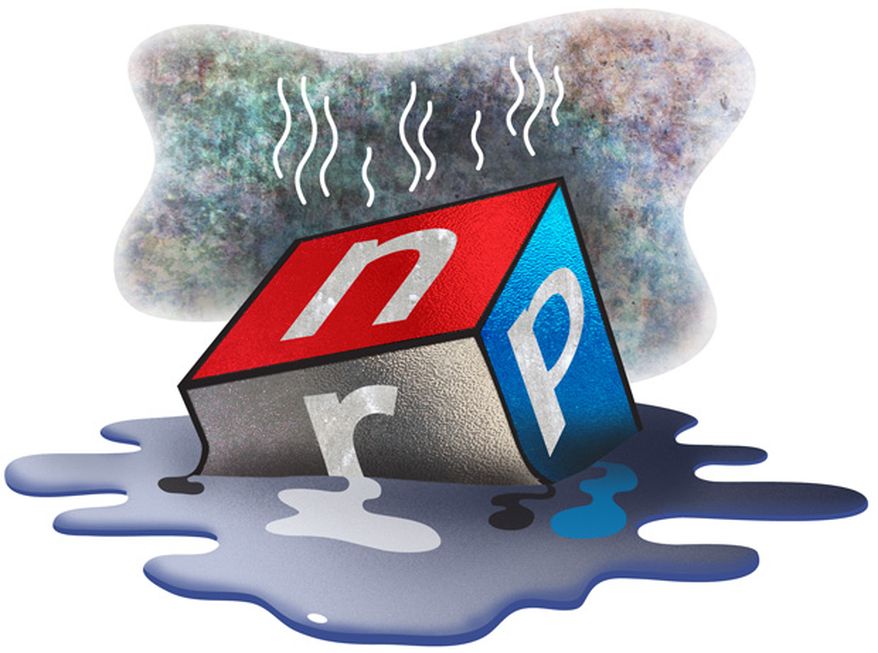
Defund NPR
(The Washington Times) – Now is the time to defund National Public Radio. Heck, 2010 was the time, and Jan. 3, 2023, if Republicans retake the U.S. House and Senate in next year’s midterm elections, will be even better.
In 2010, Rep. Doug Lamborn (R-Colo.) introduced legislation eliminating federal funds for the Corporation for Public Broadcasting. CPB is the umbrella under which NPR and television’s Public Broadcasting Service suckle, splitting most of CPB’s budget, today $565 million.
There are two compelling reasons to defund NPR in particular:
- It chronically violates the federal statute that governs public broadcasting.
- It doesn’t need taxpayers’ money anyway.
Mr. Lamborn has reintroduced measures to defund CPB and NPR (H.R. 3410 and 3411) in each subsequent Congress, including the current 117th. Futile, so far, there’s no reason Lamborn and his co-sponsors—seven to defund CPB, six to delete NPR, and all Republicans—should desist. Rome’s Cato the Elder ended every Senate speech, regardless of the subject, with “Carthago delenda est [Carthage must be destroyed]!” Eventually, it was.
The Telecommunications Act requires of all CPB fund recipients “strict adherence to objectivity and balance in all programs or series of programs of a controversial nature.” Yet, neither NPR, PBS, nor CPB ever established procedures to monitor adherence to or violation of the objectivity and balance standard.
For decades, ombudsmen, inspector general’s reports, and rare instances of congressional oversight have come and gone. Introducing his latest NPR and CPB defunding proposals last May, Mr. Lamborn accused public radio and PBS of “forcing a socially progressive viewpoint on its audience.”
He noted, for example, that NPR had refused to cover the Hunter Biden laptop story. Highlighted by the New York Post, this was news that e-mails on the wayward presidential son’s forgotten laptop intimated a Biden family enrichment scheme via Ukraine and China, while Joe Biden was vice president.
But NPR’s executive managing editor for news, Terence Samuel, declared coverage “would be a waste of time.” Kelly McBride, the network’s “public editor,” tried to justify the decision to censor by raising doubts about the laptop story that already had been dispelled.
Nevertheless, the “socially progressive” network was early—and repeatedly—on the trail of President Trump’s potential violation of the constitution’s emoluments clause.
Republicans weren’t always alone in hearing NPR’s objectivity and balance violations. In 2003, during anti-Israel Palestinian terrorism marking the second intifada, 11 House Democrats, led by Reps. Eliot Engel (N.Y.) and Brad Sherman (Calif.) wrote the network’s then-president, Kevin Klose: “[F]or many years, National Public Radio programs have presented a view of the Israeli-Palestinian conflict that is too often biased against Israel. … [D]espite concerns raised over the years by listeners, members of NPR affiliate stations, and members of Congress, NPR coverage of the Middle East—to our ears and the ears of many of our constituents—still exhibits a slanted perspective on the conflict.”
(Disclosure: This writer helped provide examples for the Engel-Sherman letter.)
In corporate damage-control, NPR then hired two public relations firms and sent Klose on a speaking tour to Jewish audiences. But as to anti-Israel bias, nothing has changed; this July featured at least three examples of the network’s two-dimensional, anti-Israel “reporting.” What has changed is pro-Israel Democrats’ reluctance to challenge their party’s increasingly anti-Zionist base.
NPR’s news operations could survive without CPB’s largess. In 2003, the estate of Joan Kroc—widow of McDonald’s Corp. founder Ray Kroc—left NPR more than $200 million.
The John D. and Catherine T. MacArthur Foundation periodically gift the network, as in 2016, with $4 million to support its investigative and international reporting. Then there was the scandal—quickly forgotten—of NPR taking $100,000 from the pro-Iran nuclear deal Ploughshares Foundation for coverage of … the Iran nuclear deal.
NPR’s ombudsman at the time sanitized the transaction without explaining why a partisan like Ploughshares repeatedly found the network worth subsidizing.
In addition, the Ford, Wallace, Knight, and Bill and Melinda Gates foundations have dumped tens of millions into NPR. So have corporate sponsors from State Farm Insurance to Holland America Cruise Line.
Continue the fight, Mr. Lamborn. Objectivity and balance demand it.






